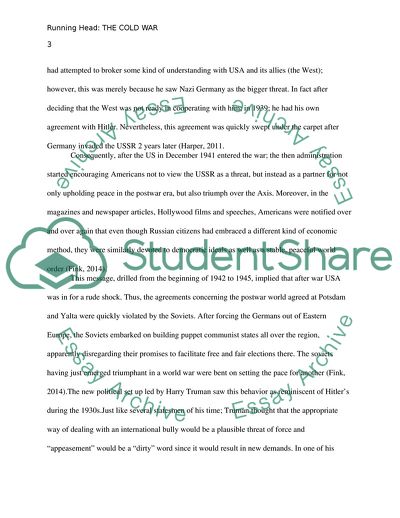Cite this document
(The Cold War Essay Example | Topics and Well Written Essays - 1750 words, n.d.)
The Cold War Essay Example | Topics and Well Written Essays - 1750 words. https://studentshare.org/history/1873603-the-cold-war
The Cold War Essay Example | Topics and Well Written Essays - 1750 words. https://studentshare.org/history/1873603-the-cold-war
(The Cold War Essay Example | Topics and Well Written Essays - 1750 Words)
The Cold War Essay Example | Topics and Well Written Essays - 1750 Words. https://studentshare.org/history/1873603-the-cold-war.
The Cold War Essay Example | Topics and Well Written Essays - 1750 Words. https://studentshare.org/history/1873603-the-cold-war.
“The Cold War Essay Example | Topics and Well Written Essays - 1750 Words”. https://studentshare.org/history/1873603-the-cold-war.


